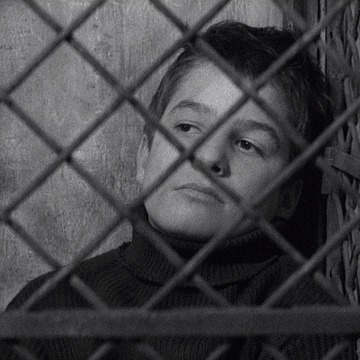
Thelonious Monk, “I Surrender, Dear” – from Brilliant Corners (1956)
We have been discussing sadness, loss and heartbreak… Here it is again, at least for me, though from a very different direction. And from a direction for which I have no map or compass. My training is in words, and to a lesser extent images—writing poetry and essays, analyzing films and visual art. Music is foreign terrain for me, at last when it comes to analysis as opposed to consumption, and as I’ve indicated before the tools and training I have don’t equip me to talk about it in the same way I can about film, say, or poetry. Or even songs with lyrics, where I can focus much of my attention on that lyric content, inadequate though this clearly is.
Here is music without words. Profoundly moving music, and music that seems to me to be speaking of loss. Not the love and heartbreak of Dusty Springfield’s “I Just Don’t Know What to Do with Myself” nor even that of Dar Williams’ more subtle and mature take on those issues in “It Happens Every Day.”
What we have here is closer to Elizabeth Bishop’s “One Art” than anything else about which I’ve written. But even that isn’t quite right. There’s nothing in “I Surrender, Dear” like the admission, the blow at the end of the poem—”the art of losing’s not too hard to master / though it may look like (Write it!) like disaster.”
It’s a reflective, introspective piece, “I Surrender, Dear”—bittersweet but not bitter. There’s pain, but it’s more like the ache of an old wound—one of those wounds that never fully heals, that throbs when the weather changes—or when you see someone with her hair walking down the street. Who is he surrendering to? What is the surrender, what’s he giving up?
Where’s the pain and loss, the bittersweetness in the song? Here’s where my lack of musical knowledge frustrates me, limits my ability to explain what I hear, to justify the meanings that I attempt to make of it. I think that bittersweet quality is there in the way the fingers move across the keys, the hesitancy and then reach, the physical longing that the tune enacts in the way the hands have to move along the surface of the piano (or so I imagine from the sequence and cadence of notes). In the rising and falling. A new passage starts on a rise, louder, with more energy, on a high (a positive note) and then tapers off, slows, drifts away. It’s the moment when Monk turns away—the moment when that absence reasserts itself. Monk is phlegmatic—while there is a sadness, he’s not mired in it. Regrets, yes, leaving things behind, but moving on—maybe that’s the surrender.
In a graduate writing seminar at Berkeley, a young shy guy with unkempt blond hair, who seldom looked up or said much, blew us all away one day with a poem about love and Thelonious Monk. I kept a copy of that poem with my own work from the seminar as a reminder of what I wanted to be writing, but it’s off in storage somewhere now. The poem was about love and sex, and the failure of love and sex to abolish separateness and loneliness—and it was about Thelonious Monk and his own navigation of these issues, of the labyrinth of the human heart. The ending went something like this:
From the other room, Monk’s music wraps us in quieting sheets.
And all the songs have titles like “Ruby My Dear” and “Well, You Needn’t”
but what they’re really saying is “that’s the way it is,
that’s the way it is.”
“Monk’s music wraps us in quieting sheets.” Yes. For me, particularly here, more so than in the songs mentioned in the poem. The image of quieting sheets comes, I think, from an historical practice in mental institutions—tightly wrapping agitated patients, patients in the throws of extravagant emotion, in sheets, to restrain them and calm them.
It’s what I need now. Not the anguish of words, with their appeal to the cerebral cortex, their promise of sense and communication, of connection—a deceptive promise, language being “elegy to what it signifies.” The consolation of music like this is what I want, the slow drip through the ears straight into the limbic system, some place older and darker. And especially this: one man, the solitude of the piano, by themselves in a pool of light in a smoky room. Music that wraps us in quieting sheets.

Thelonious Monk – (October 10, 1917 – February 17, 1982) was an American jazz pianist and composer who, according to The Penguin Guide to Jazz, was “one of the giants of American music”. Monk had a unique improvisational style and made numerous contributions to the standard jazz repertoire, including “Epistrophy,” “‘Round Midnight,” “Blue Monk,” “Straight, No Chaser” and “Well, You Needn’t.” Monk is the second most recorded jazz composer after Duke Ellington, which is particularly remarkable as Ellington composed over 1,000 songs while Monk wrote about 70… (via Wikipedia, the free encyclopedia.)
Also check out: My favourite album: Brilliant Corners by Thelonious Monk | Music | guardian.co.uk.
Filed under: Autobiography, Song of the Day, jazz, music











